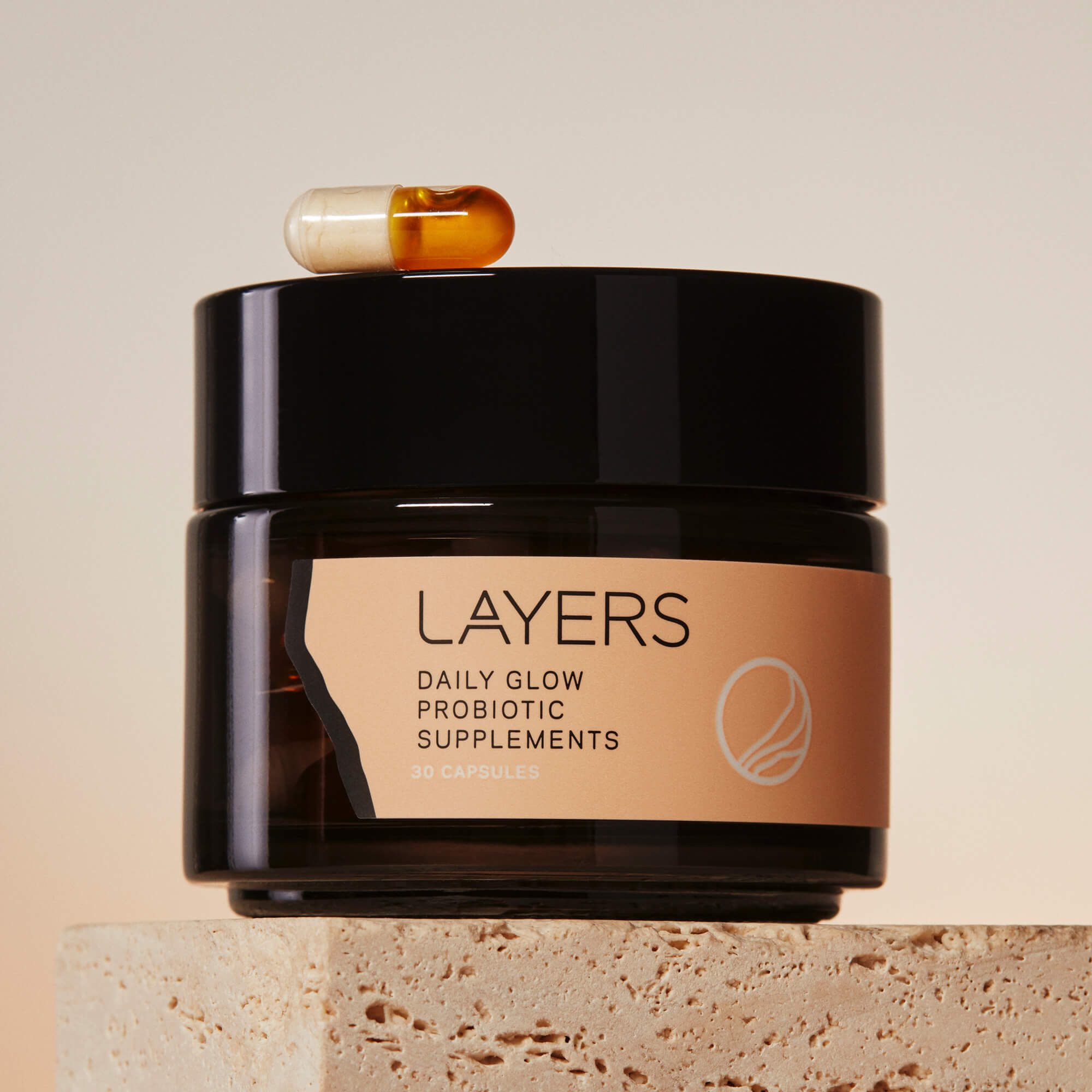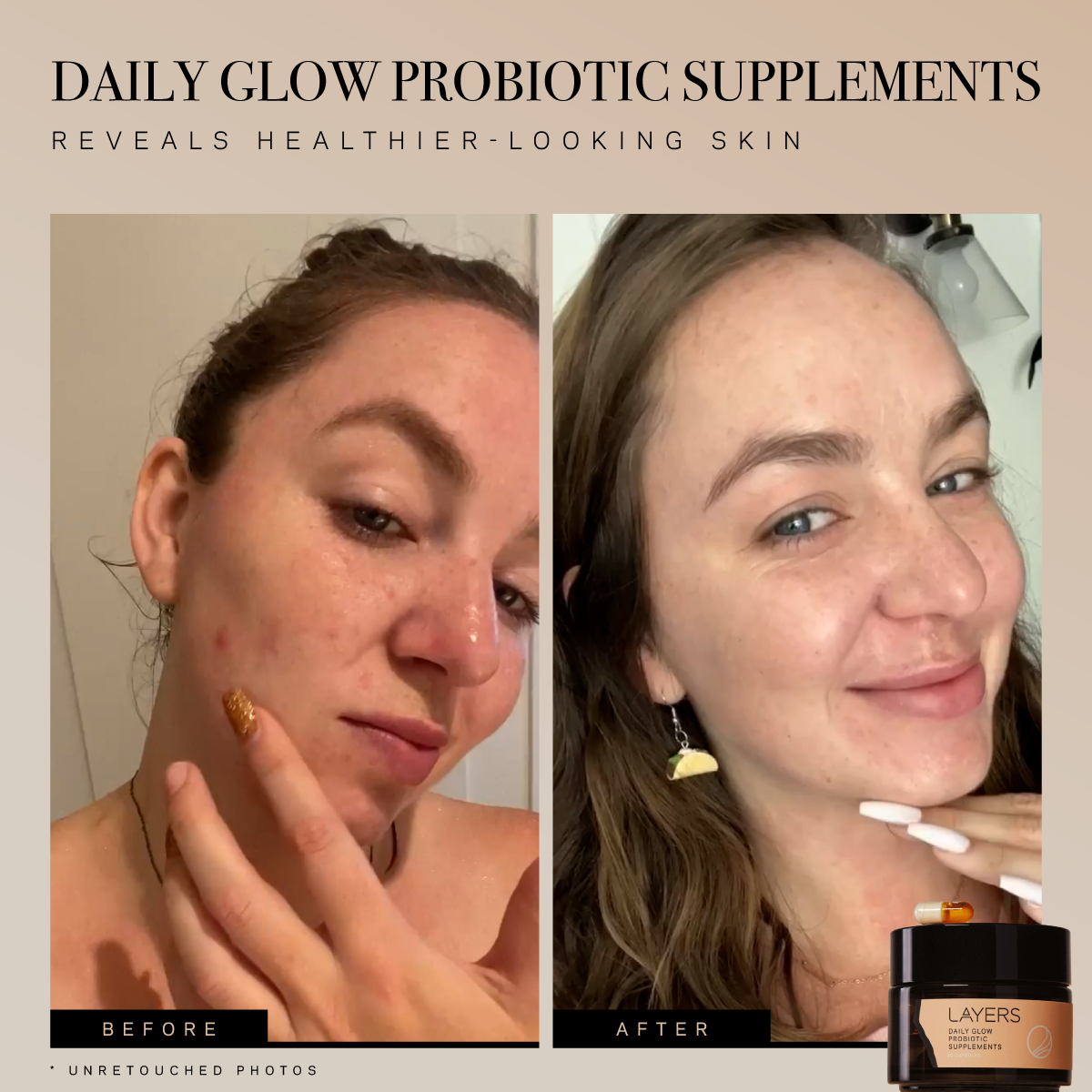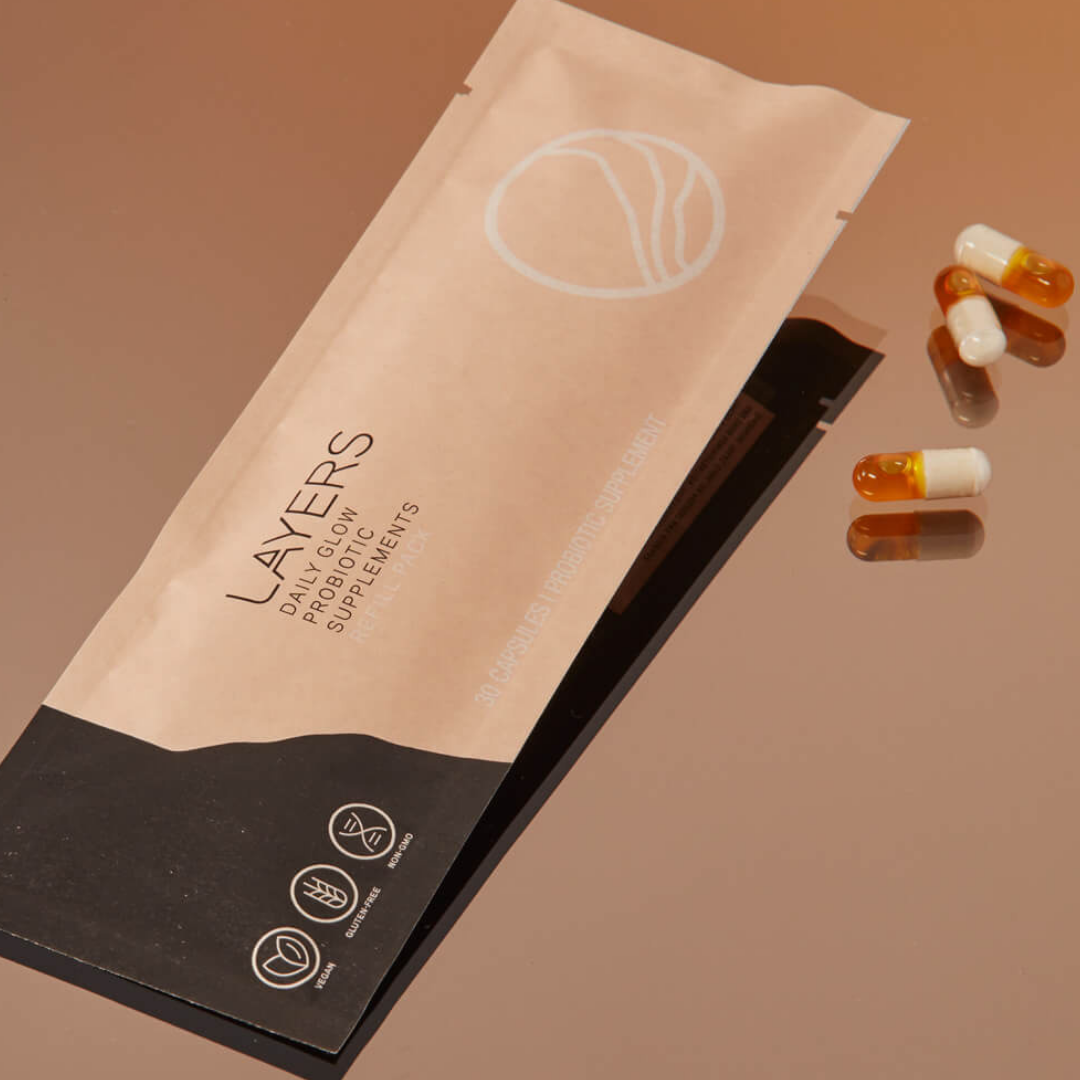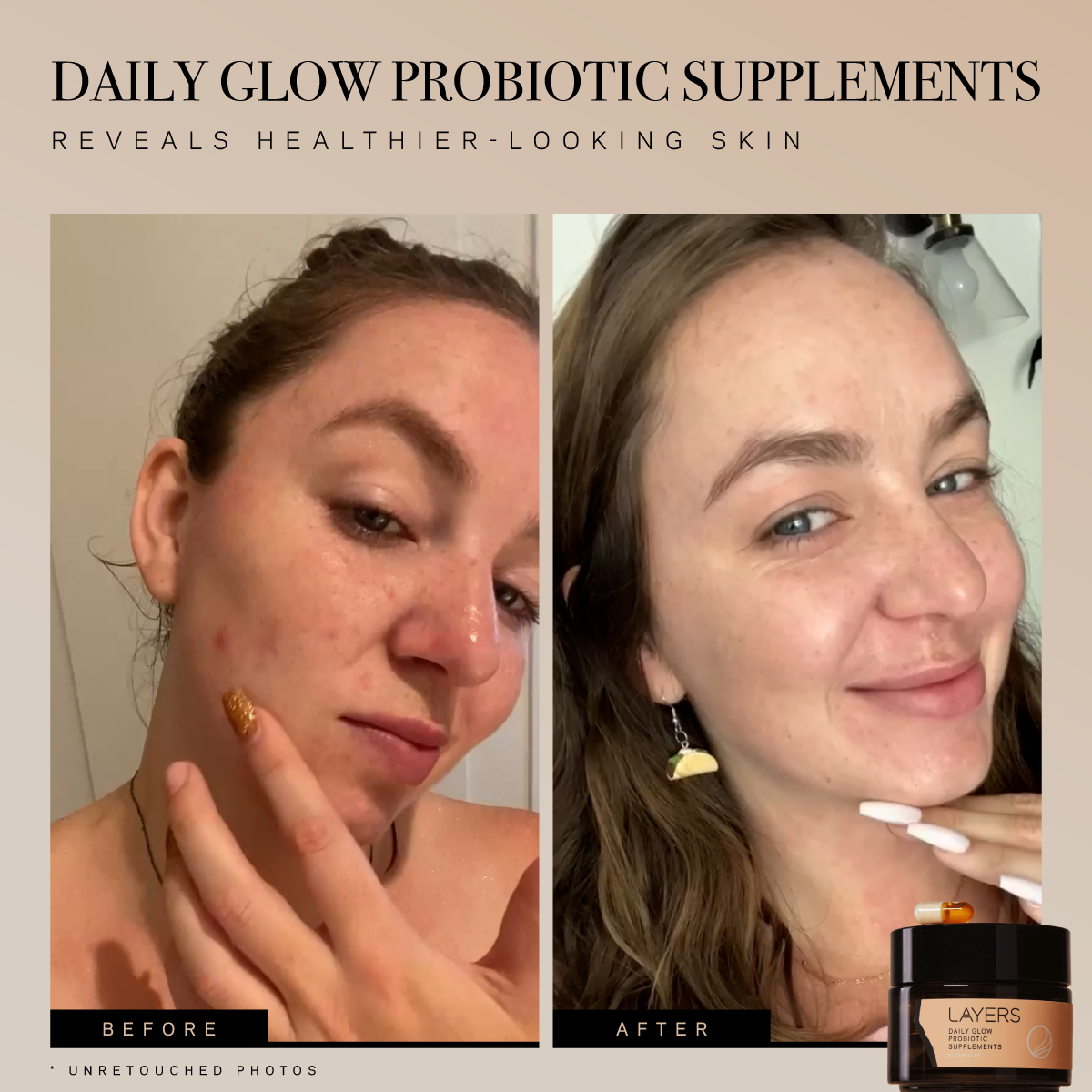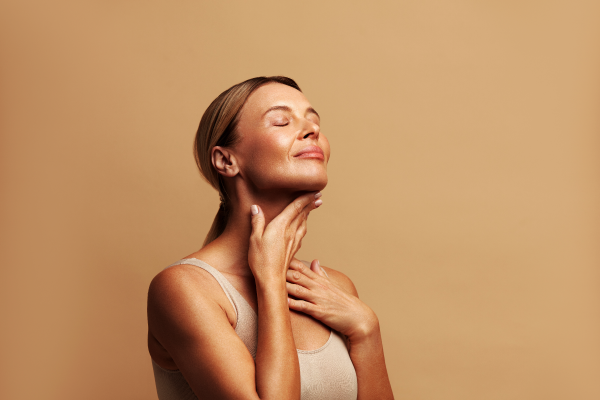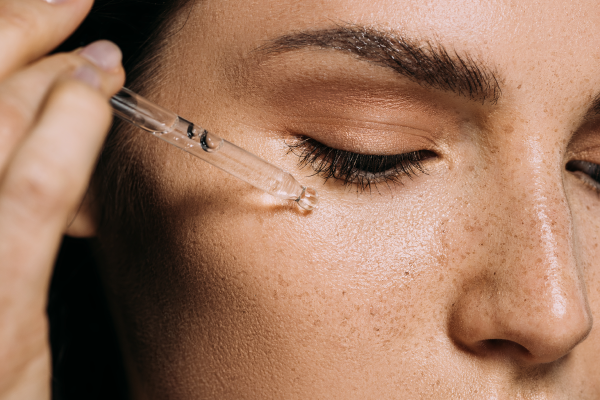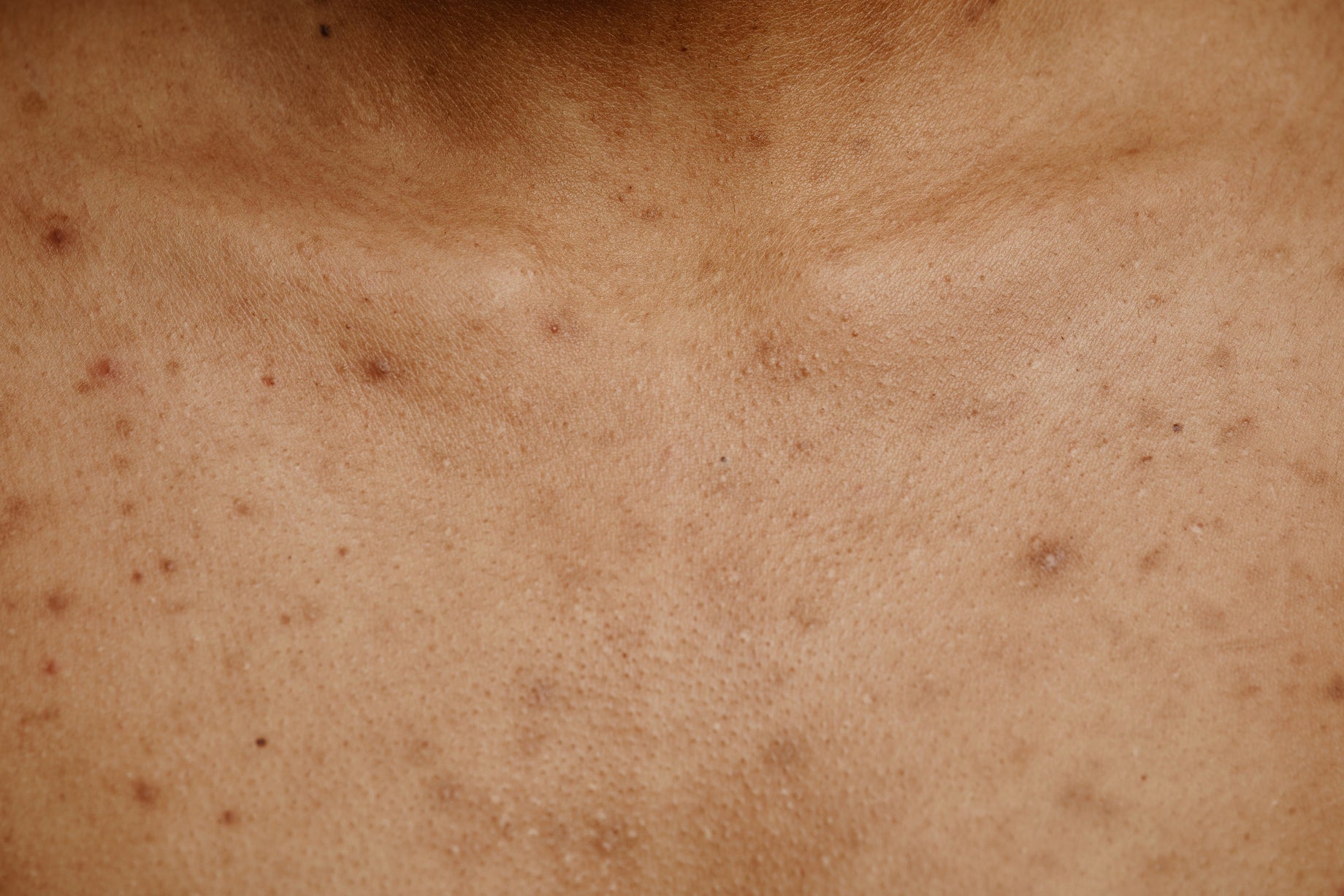You can’t always control the pollutants your skin comes into contact with, but probiotics may hold the key to protection.
In our increasingly industrialized world, pollution is impossible to avoid. It’s actually been listed as a global public health emergency by the World Health Organization. We’re exposed to environmental pollutants every day, particularly those of us who live in cities or industrial areas.
Whether it’s via contaminants floating in the air particles around us (traffic or industry), or we’re inhaling pollutants voluntarily (cigarette smoking) or involuntarily (second-hand smoke), we are all exposed to pollution on some level. While the downsides of inhaling and absorbing air pollution seem obvious, we’re only recently beginning to understand the long-term effects of this exposure.
HOW DOES POLLUTION AFFECT YOUR SKIN?
Breathing in particles is one way pollution enters the body, but pollutants can also pass through skin cell membranes. From there, they diffuse throughout the body and affect us in different ways. Several studies have linked pollution to skin conditions like acne, eczema, inflammation, oxidative stress (responsible for premature aging), and even hives.
For anyone suffering from chronic inflammatory skin diseases, studies show that high pollution levels are responsible for exacerbating these conditions. If you live in a city and you experience frequent acne, eczema, rosacea, or regular atopic dermatitis flare-ups, then pollution could be the culprit.
Lifestyle stress is another important factor to consider. If you’re a smoker, for example, you’re inhaling polyaromatic hydrocarbons (PAHs), substances known to cause premature aging through oxidative stress. Oxidative stress also leads to things like sun spots, wrinkles, and moisture loss in the skin, all things that break down your barrier layer and decrease your skin's natural ability to protect itself.
But one of the more interesting consequences of environmental pollution is just being understood. There is growing evidence demonstrating that our daily exposure to air pollution is starting to affect our gut and lung health.
INTRODUCING… THE GUT-LUNG AXIS
You’ve heard of the Gut-Skin Axis and the Gut-Brain Axis, but you probably haven’t heard about the Gut-Lung Axis. As a probiotic skincare company, we often talk about the connection between your skin microflora and your gut. Now, there’s emerging evidence that what you’re breathing in has a direct effect on your gut health.
Air particles containing pollutants can enter the body via the lungs and end up in your gut. This, in turn, affects your whole microbiota, easily throwing off that all-important microbiome balance that’s needed in order for your body to protect you. So, whatever enters your respiratory tract plays a central role in the strength of your immune system.
Studies are showing links between air pollution exposure and gastrointestinal issues like Crohn's disease, IBS, and ulcerative colitis. They’re also showing links between air pollution and respiratory diseases like asthma and rhinitis. The evidence for an interconnection between the respiratory and gastrointestinal tract continues to grow as more studies are conducted.
By now, you get the point. Pollution = bad. Bad for your skin, your lungs, and for your gut. But are you just supposed to stand there and take it?
No way, Rosé!
When pollution brings problems, probiotics come packin’ solutions.
HOW DO PROBIOTICS HELP FIGHT THE EFFECTS OF POLLUTION?
Ok, time to put on those chemistry goggles. Kidding. But, let’s pretend.
A strong microbiome is all about balance…pH balance. When you’re giving your body what it needs in the form of nutrients and taking into account your overall environment, then friendly microbes can flourish. Prebiotics feed the good probiotics, which creates an equilibrium in your pH levels. These friendly bacteria not only maintain balance but have the ability to restore balance at the skin and gut levels.
Prebiotics and probiotics work as a team to stimulate good gut health. These microorganisms help calm and/or prevent inflammation and oxidative stress caused by air pollution. For example, strains of Lactobacillus Plantarum (a key ingredient in our Daily Glow Probiotic Supplements) have been shown to decrease amounts of cadmium in the body, a heavy metal byproduct of cigarette smoking.
HOW DO I GET MORE PROBIOTICS?
Considering how environmental pollutants affect us at the gut level and how vital our gut microbiota is to our overall health, loading up on probiotic allies is a no-brainer. But how, exactly, do we do that?
Understanding that the microbiome is a whole system is step #1. That means supporting it requires an inside-outside approach.
-
Diet: Eat a balanced, healthy range of foods, including plenty that naturally contain prebiotics and probiotics.
-
Supplement: Take a daily probiotic supplement to support your gut health.
-
Exercise Regularly: Moderate exercise has been shown to help your good gut microbiota thrive.
-
Protect your Skin: Wear SPF and use probiotic-containing skincare products that help reinforce and strengthen your skin’s barrier to the environment.
THE BEST POLLUTION-FIGHTING SKINCARE INGREDIENTS
In addition to probiotics, there are a few more skincare taskmasters that are up to the pollution protection challenge:
-
Antioxidants: These bind to free radicals caused by pollution, stopping them before they can cause damage to skin cells. You can find them in Layers Probiotic Skincare ingredients like Milk Thistle, Orobanche Rapum, Meadowfoam Seed Oil, and Pomegranate Seeds.
-
Ceramides: Powerful ingredients that help boost the skin’s barrier function, these work kind of like bricks, trapping moisture in the skin. When your skin has proper levels of ceramides, which can be supplemented with probiotics, it plays better defense against pollution.
-
Hyaluronic acid: An important building block of skin that helps maintain moisture levels, thus, preserving, protecting, and restoring the skin barrier.
-
Sunscreen: The combination of UV rays and pollution is no bueno. Certain pollutants are activated by sun exposure, which can not only burst collagen and elastin fibers that help protect your skin, but they can promote cellular changes at the DNA level that have been shown to cause cancer. For real protection, look for a mineral sunscreen that’s 30+.
Short of running away and setting up house in the middle of a far-away rainforest, there’s little we can do to avoid contact with environmental pollutants. Obviously, we all hope for more sustainable methods of industry to one day prevail so that ultimately, fewer of these unhealthy substances are in the air, to begin with. But in the meantime, the benefits of using probiotics and prebiotics to combat the negative effects of pollution are promising.
Taking an inside-outside approach with a combination of a healthy diet, moderate exercise, and powerful probiotic protection for your gut and your skin can all help mitigate the negative health consequences of pollution exposure. Slathering on a soothing layer of our Immunity Moisturizer with lactobacillus ferment and pomegranate extract and sipping on a blueberry and beet smoothie with probiotic-packed Greek yogurt has never sounded soooo good!

